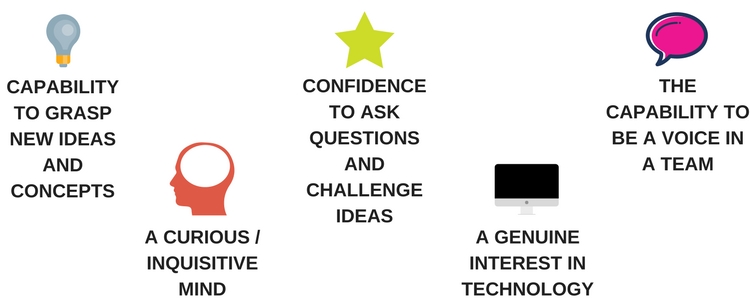
Talking Testing with Matthew Parker
As part of my Searchability Testing content series I caught up with Matthew Parker - experienced Software Tester based in Stoke-on-Trent and founder of Testing Tackled, to hear his thoughts on the industry and advice for other budding testers out there! You can follow Matthew on Twitter here.
Looking at your LinkedIn profile I can see you have a huge amount of experience in Testing, but have also worked in other areas of IT including support and development. What was it that attracted you to the field of testing and lead you to your current role today?
If I’m being completely honest I’m one of those testers who fell into it. Long story short I was a developer at a company without any testing function. I happened to be asking questions and showing an aptitude for product quality at the same time as they were considering creating a testing function so asked me to take it a step further and build a test team. I had only been developing for a few years and this felt like a good opportunity to progress so I took a chance. Taking ownership of something so early in your career can often go one of two ways. Either you throw yourself into it and become quite passionate about it or you move on quite quickly to something else. For me it was the former. That said it’s been a bit of a slow burn and the first 9-10 years were up and down for many reasons. The last 4-5 years however I’ve been lucky enough to work for and along side some fantastic mentors, coaches and leaders who opened my eyes up to the wider software/testing community and the power of self development and shared learning.
You’re obviously an advocate of Agile Software Development – for teams out there that don’t work to this way what would you say are the main benefits of Agile?
Context is everything in software so I would always be a little wary of recommending anything without understanding a given team, product and skillset. It’s also important that in order to get the most out of an approach like Agile, the organisation as a whole understands and buys into it or you may find yourself swimming against the tide. All too often companies try to introduce Agile as an out of the box process, without really understanding or considering the values Agile brings. That said it can be enlightening and refreshing, not to mention valuable to teams who are knee deep in process and documentation that they struggle to see the value of. There are many elements I find valuable from a well-implemented agile approach. One example of this value is the ability to get feedback early and often during software development. Early feedback is critical to allowing teams to fail fast, learn quickly and continually improve. It also helps businesses to adapt quickly and helps to ensure product(s) are delivering value as early as possible.
Tester’s use a range of technologies and systems nowadays, which do you personally think are the most useful tools for a Tester?
Again context is critical in order to effectively answer this question. I’ve seen teams introduce tooling under the illusion of working to best practices. I’m not a fan of the notion of best practices, just good practices the can help teams improve their ability to deliver. It is important that teams use tools to support their approach and add value to good practices rather than allowing their eagerness to introduce tools to define their approach. I generally find the most useful tools to be the ones that help speed up delivery and allow teams to be more effective at doing what they do best. From a test perspective, automation tools as part of an effective a continuous integration approach can allow for very quick feedback. Selenium Webdriver should be high up on most teams list when looking to automate. I would however encourage any team looking at automation, to consider automating the right things at the right time. By that I mean they should be looking to automate first and foremost at the code level. Can tests be introduced as part of (or even before) functional code is written? Many people are quick to look at BDD frameworks like cucumber however if development teams are fully engaged with test, value can be achieved executing with test frameworks like JUnit/TestNG.
Stepping out a level, if api’s are available and there is value to be achieved, Postman is a powerful tool to support API testing (alternatives include Paw, API Tester and Soap UI). When you have exhausted the value from automation frameworks delivering quick feedback and you can see achievable value from automating through the UI, then depending on your product you will be looking at the tools like Webdriver (if you have a web front end as most products have now). For those still working with desktop applications, a tool I’ve achieved value with previously is Test Complete.
I can not stress enough that it is critical to ensure you only automate what will provide value to product delivery and look to build the automation to deliver the greatest value at the earliest opportunity. Confidence in tests that are running will only be achieved with stability and consistency.
1521041215.jpg)
There seems to be a real community feel for the Testing industry across Yorkshire and the North West, with regular events and Tester Gatherings – do you think sharing ideas between individual Tester’s and hearing other individuals speak on the topic is important for the growth & development of testing teams?
I think this is hugely important for testers growth. I’m a massive advocate of the work being done to build the testing community at the moment and the results are there to be seen. Communicating and sharing ideas is the only way ideas grow and develop, taking in thoughts and perspectives along the way. I’ve personally been experiencing the power that talking about testing ideas, challenges and attitudes to others can have in terms of self-development. The value to the person giving the talk is that it drives out critical thinking around the topic they are talking about and challenges them to question what they think they already know about the given topic. For those listening, it encourages and nurtures new ideas and alternative opinions. Personal growth, team growth and community growth is driven by a culture of wanting to share, question, change and improve. Enabling individuals to open up their ideas to new and interesting groups supports that culture.
Is there a particular company / Twitter page / individual that you would recommend following for people that want to stay up to date with the latest Testing news?
I am lucky enough to have been supported, encouraged and backed by many individuals and groups over a number of years, far to many to list here. However over the past 5 years there are three that stand out for me. Firstly David Espley (@DavidEspley), who was my CTO at my previous company. It was David that really encouraged me to embrace the wider community, to look beyond myself for new ideas and thoughts and gave me confidence in my own ideas and my own voice. Secondly, the guys who have built up @LplTesterGather to what it is today, Leigh Rathbone (@villabone), Duncan Nisbet (@DuncNisbet) and Chris Thacker (@TeamLHC). These guys have built up an amazing community in the Liverpool Tester Gathering and are hugely supportive and encouraging towards anyone with something to share. I was lucky enough to be given the opportunity to do my first prepared talk at Liverpool Tester Gathering earlier this year and I can honestly say I find these three guys inspirational. Last but by no means least is The Ministry of Testing, particularly two people who have built it up to what it is today, Rosie Sherry (@rosiesherry) and Richard Bradshaw (@FriendlyTester). @ministryoftest is a growing and inspiring community of testers working towards providing the materials, support and opportunity to grow and develop testing and testers around the world of software. I was lucky enough to attend Testbash Manchester two years on the trot and will be attending Testbash Brighton this year. To say I was inspired by my first Testbash is an understatement and that inspiration saw me get up on stage for the first time to give a 99 second talk at my second Testbash. If you want to know more about Ministry of Testing, Testbash or anything else you can think of relating to testing then I implore anyone looking to grow within testing to visit www.ministryoftesting.com and explore.
I see that you have published a number of articles on your LinkedIn as well – is writing about your work something you enjoy and what do you feel are the most relevant topics Tester’s are interested in hearing about?
I started writing a testing blog (www.testingtackled.co.uk) a number of years ago, primarily to help me to explore the ideas in my head and challenges I encountered in testing. I try to write about something semi regularly but sometimes life and work compete and something has to give. I regularly note down new ideas that might be worth writing about (and possibly talking about). Turning those ideas into blog articles allows/encourages me to explore them and challenge my own preconceptions. I wouldn’t profess to represent the whole diverse testing community but I can speak of what I specifically find most relevant. The articles that really grab my attention fall into three categories. Practical articles that target real challenges and ideas to address those challenges. These articles are at there best when supported by practical tips that testers/teams can look at in the context of there own teams. Examples of articles in this group might be suggestions around tooling or advice around applying exploratory or accessibility testing. Secondly I enjoy reading articles about peoples journey’s in testing and the direction their careers have taken them. These articles can be pretty inspiring and encouraging to others finding their own way. Finally and something I can’t get enough of at the moment are articles and posts discussing approaches to learning and self-development. This is something that can look very different from one person to the next as we all identify with different development and learning techniques. Seeing how others address these challenges and embracing new learning ideas and opportunities can be powerful.
1521041542.jpg)
If you were looking to hire a Software Tester for your team – what characteristics would you look for / what advice would you give to those looking for a new role?
Software Testers come with all kinds of strengths so I try to keep an open mind when recruiting as it can often reap some pleasant surprises. Generally the key traits I value in potential team members are, capability to grasp new ideas and concepts, a curious/inquisitive mind, confidence to ask questions and challenge ideas, a genuine interest in technology and the capability to be a voice in a team. This is not a rigid list by any means and again context around the role and team they will be working in is important, with certain experience/exposure/technical skills relevant for some positions. Underpinning all of this though should be the most important characteristic, an eagerness to learn, self develop and continually improve (no matter how experienced they are). The important thing when looking for a new role is to do your research. If you have any local meetups and can attend, go along and talk to other testers. Make sure you understand the potential roles and potential employers out there. Try writing down what you can offer them and run it by others to see if they agree, you may surprise yourself with the feedback you get. Read lots of articles and blogs and anything you don’t understand, ask about. Put yourself in the position of being the expert on what you do know and also on what you don’t know, identifying a clear path between the two. If you interview, ask questions, understand the role and what they are looking for and try to visualize how you could fit. Use your knowledge of what you do and don’t know to paint a picture of how you can be valuable to the company but be humble and sell your potential, not just your capability.

There is a strong demand for technical candidates and companies need to remain competitive in order to attract the right people – what do you think are the biggest motivators for candidates when choosing a company?
Again I wouldn’t profess to speak for others as everyone has different values, but I can give you a flavor of my own motivations and I believe they have at least some overlap with others. I personally put company culture and salary towards the top of my list. The right culture and values will support growth and development and ultimately become an enabler to the use of the most appropriate technologies and nurturing of the best approach. Companies that empower, support and invest in the growth of their employees are rare diamonds in my eyes but are becoming increasingly less rare. Putting salary near the top of my list may seem a little shallow but there is a reason. This is not without flaws but I often find that the salary range within a company can be an indicator of the value they place on employees. I’m not suggesting that companies have to pay a fortune to demonstrate they value roles, but the range of salaries can indicate how much value they place on test knowledge in comparison to say development skills. I find this can (as I said before this as an imperfect opinion) indicate how much of a voice test are capable of having within the business.
Finally if you hadn’t discovered the wonderful field of Testing what do you think you would be doing as a job today?
Obviously I started out my career as a developer, so not ‘falling’ into testing would logically suggest I might still be developing. My first love however was history. So I don’t know if I would have made a career of it but prior to ending up on a joint honors computer science and history degree, I saw myself getting into Archaeology.
To keep up to date with the latest news and blogs in my Testing series then please follow me on Twitter!



1521041215.jpg)
1521041542.jpg)
